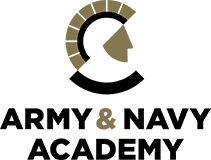 Preparing for College – Readiness is More than Just Academics
Preparing for College – Readiness is More than Just Academics
Preparing for college is an important step in your child’s education. Starting college prep early has many benefits, including learning readiness, campus life preparation, and the ability to navigate challenges.
Sometimes students make the mistake of only focusing on academic readiness, but preparing early for college actually entails far more. Confidence, independence, and resiliency to navigate independent living, time management skills, goal-setting, creating a social life, and establishing good habits are all benefits of preparing early for this major life change.
College Prep – Understanding the Academic Perspective
Let’s begin by examining ways to get ready academically.
Widely used by high schools, college prep is a term employed at public and private schools to describe their approach to the curriculum and other standards. Whether you attend a public high school, charter schools, private independent school, or a boarding school, a college prep curriculum includes specific academic standards.
To be more specific, in every state, there are typically curriculum standards that apply in order for students to be well prepared to take all the requisite courses to gain admission to a college or university.
Let’s take a look at California for example, where preparing for college typically means adherence to a University of California standard-based curriculum. This ensures students can get into a Cal State University or a University of California campus if they meet the requirements. However, it also means these core classes prepare you mentally for the rigors of the various subject areas covered in college.
One of the key benefits of starting college prep early is to become an active learner, develop core skill sets, and map out an academic plan in high school. Once a student knows the classes they need to take, they can then begin to work on participating in class, developing good study habits, asking for support as needed, and meeting the requirements for a college or university of their choice.
To support this process, at some private boarding schools for instance, they have a college counseling staff, to help students with academic scheduling and college planning steps such as: how to choose colleges, how to apply, essay skills, letters of recommendation, testing preparation. Some schools provide full college planning services and even take students on college campus tours. Private schools also focus on helping students develop good learning and study habits, so students are better prepared for success in college.
Perhaps, the most important preparation for college admission is to be an active and engaged learner and to adopt a growth mindset. This outlook allows for students to learn, experiment, and truly benefit from a college education, find a major, and graduate.
Although College prep begins early in life starting in elementary school, and continues through middle and high school, much of this preparation also happens at home.
Some students and parents make the mistake of thinking good grades will be enough to do well in college, but statistics show that many of the reasons students dropout of college depend on character and other personal attributes. If a student doesn’t develop a real passion for learning, along with good study and life habits, the student will be at a real disadvantage in college.
Now, let’s take a look at what college readiness really means, so you can get a handle on the many benefits of working on these preparations.
Prepare for College Learning
Think about the mindset of learning and the benefit of preparing this outlook early in life.
- Be a learner – Find out what interests you and stretch yourself to learn new things. Explore how academic understanding and knowledge will tie in with the actual college major and career choice you have in mind. For example, if you aspire to be a pilot, you will need math, science, technology, and strong communication skills.
- Set goals – Setting goals now will help you later when you enter college. In college, you will need to set a number of goals along the way that will lead to graduation, possibly applying to graduate school, and pursuing a career. In high school, students can focus on goals such as: increase study time, develop a new study habit, improve writing and verbal communication skills, and achieve a specific GPA.
- Learn how to manage your time – In college, you are on your own and are expected to show up for classes on time, submit work by imposed deadlines, study on your own, and take care of yourself mentally, physically, and emotionally. Knowing how to set a daily schedule, manage project lists, and establish routines is extremely important.
- Take the required college prep classes – Don’t make the mistake of thinking you can bypass the required classes, especially if you are considering a public university. Private colleges are sometimes a bit more flexible, but you want to have the core knowledge to do well in college and the standards put you on this path.
- Work on good study habits – Knowing how and when to study is absolutely critical to prepare for college. Finding a time, place, and set routine for study habits will serve you well when you are on your own.
- Get good grades – Grades are important to gain admission to a college of your choice, so try to get at least a “B” in all the required high school classes. If you aspire to an Ivy League, top service academy, or one of the most selective colleges, a 4.0 GPA or higher is not at all uncommon.
- Testing – As equity concerns rise, more colleges and universities are waiving SAT and ACT requirements. If you have the means to take the tests, you can certainly do so, but don’t be discouraged if you think your testing skills and scores are not strong. Discuss your scores with a counselor or think twice before submitting them if you feel this will impose a barrier.
- Ask questions and engage in class – Learning how to work in teams, ask questions, do presentations, and ask meaningful questions will help in college. College is all about the deeper dive into subject areas, so you want to keep your mind active.
- Work on communication skills – Verbal and written communications skills are absolutely critical in college and throughout your career. Whether you are sending a text, an email, writing a paper, or presenting, really work on your spelling, punctuation, grammar, and the ability to articulate your thoughts and ideas.
- Become a critical thinker – Most schools now incorporate critical thinking into classroom lessons. Learning how to analyze data, information, come to hypotheses, and make decisions is all part of this important process. It will help you with research in college, but will also help you develop creative and analytical skills.
Prepare for College Campus Life
Get outside your head to create a life balance.
- Participating in sports and fitness – Keeping yourself healthy is really important. Beyond showcasing sports achievements on your college application, you want to keep your body fit and energized so you can study and perform better in college.
- Find interests in clubs and activities – Outside of the classroom, ensure you join clubs, go on trips, and expand your horizons. This will help you find like-minded friends, ignite new interests, and make school and college more fun.
- Develop leadership and team skills – Preparing for college means taking a leadership role in your own life, learning how to work with others, manage projects and direct outcomes. This is excellent preparation for both college and your future career as management skills are needed in almost every profession.
Prepare for College Challenges
Develop your values and work on character development.
- Establish strong values focused on integrity – Do your own work; don’t cheat or plagiarize.
- Demonstrate understanding and empathy for others. In college, you will be with students from all over the country and the world.
- Act responsibly – Drinking, drug use, and sex can impact your college goals.
- Do things independently – Learn how to drive, make your own decisions, manage your time, set your own goals. Parents won’t be around forever, so prepare for college and your life by thinking on your own.
- Don’t’ shy away from challenges – This will help you build resilience and “grit” when things are not easy and you face challenges with a class, a professor, friendships, or staying healthy.
All of these tips will hopefully help you understand the benefits of starting college prep early and ways to maximize learning, get ready to navigate college campus life, and how to face challenges when they arise.
Set yourself up to succeed in college and life beyond by developing a learning mindset, personal and social skills, healthy life habits, and good character while you are in secondary school. It is really never too early to begin to prepare for college.
For information about admissions, visit the Army and Navy Academy website at https://archive.armyandnavyacademy.org; e-mail at admission@armyandnavyacademy.org or phone at 888.762.2338.
#boardingschool #privateschool #militaryschool #militaryacademy #independentschool #collegetips #collegeplanning #collegeprep #preparatoryschools #prepschools


